The Short Stirling was the first four-engined British heavy bomber of the Second World War. The Stirling was designed by Short Brothers to meet an Air Ministry specification from 1936. When the preferred design from Supermarine had to be abandoned, the Stirling was ordered for the RAF. It entered service in early 1941 but had a relatively brief operational career as a bomber, being relegated to second line duties from late 1943, when other more capable four-engined RAF bombers, specifically the Handley Page Halifax and Avro Lancaster, took over the strategic bombing of Germany. The Stirling was used for mining German port areas and new built and converted Stirlings fulfilled a major role as a glider tug and supply aircraft during the Allied invasion of Europe in 1944–1945.
Specifications
General Characteristics
- Successors 1 airplane(s)
- Created On Windows
- Wingspan 93.0ft (28.4m)
- Length 72.6ft (22.1m)
- Height 23.2ft (7.1m)
- Empty Weight 39,017lbs (17,697kg)
- Loaded Weight 77,361lbs (35,090kg)
Performance
- Horse Power/Weight Ratio 0.103
- Wing Loading 39.6lbs/ft2 (193.3kg/m2)
- Wing Area 1,953.5ft2 (181.5m2)
- Drag Points 23314
Parts
- Number of Parts 286
- Control Surfaces 5
- Performance Cost 1,317

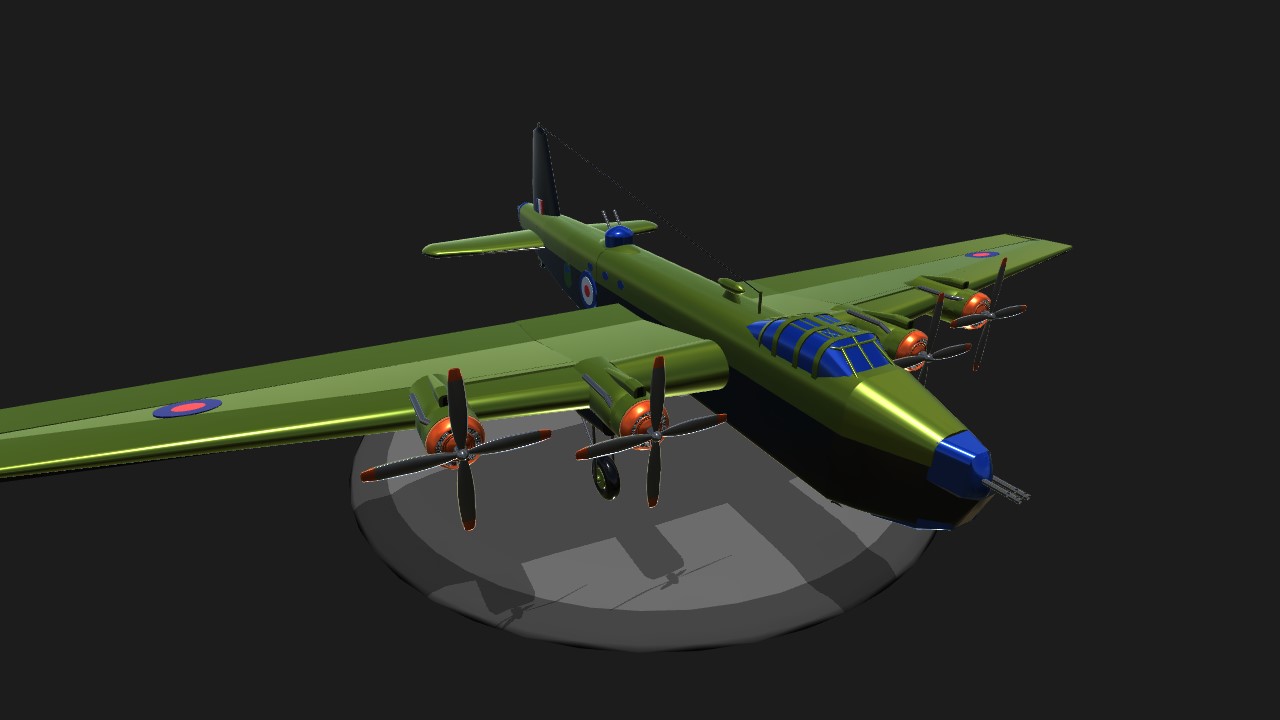
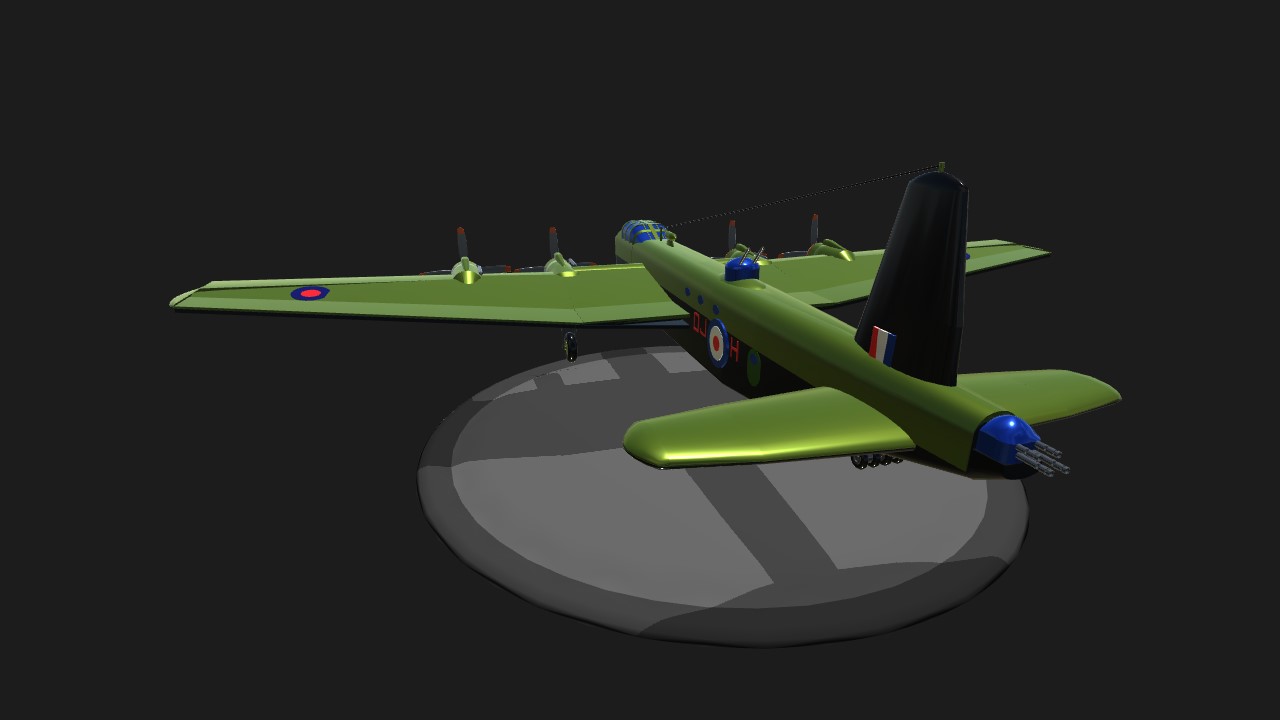
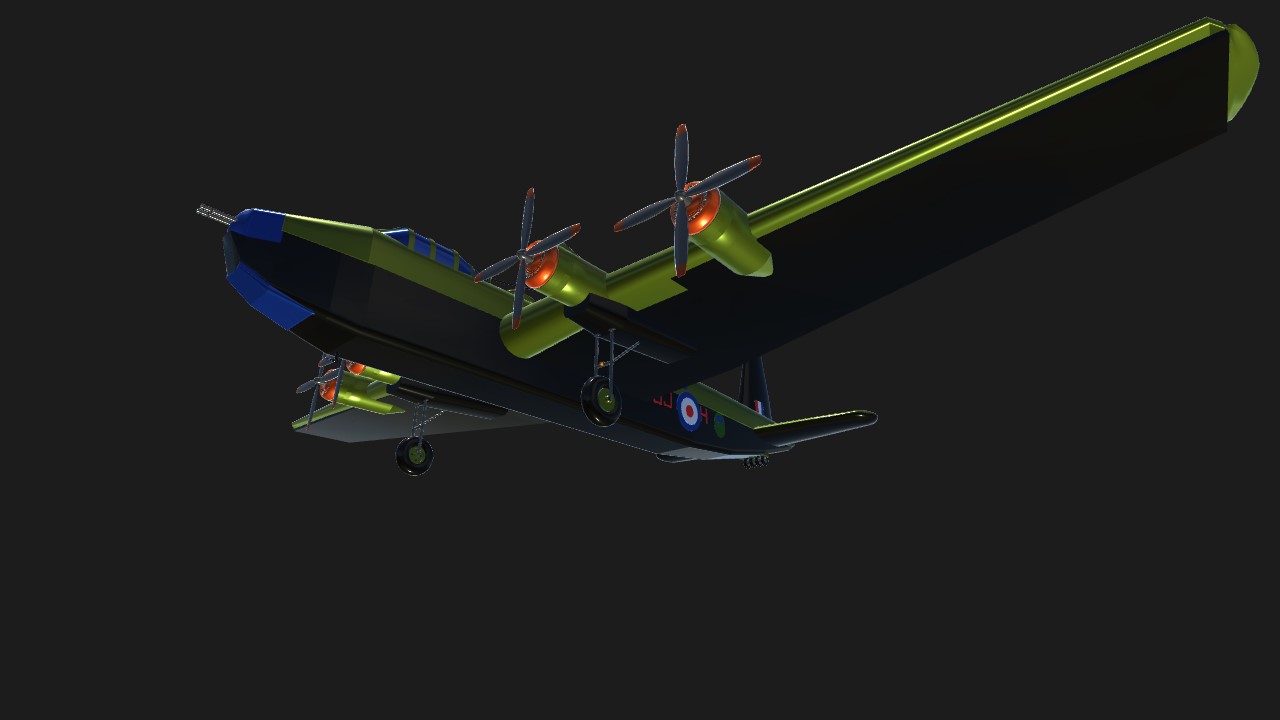
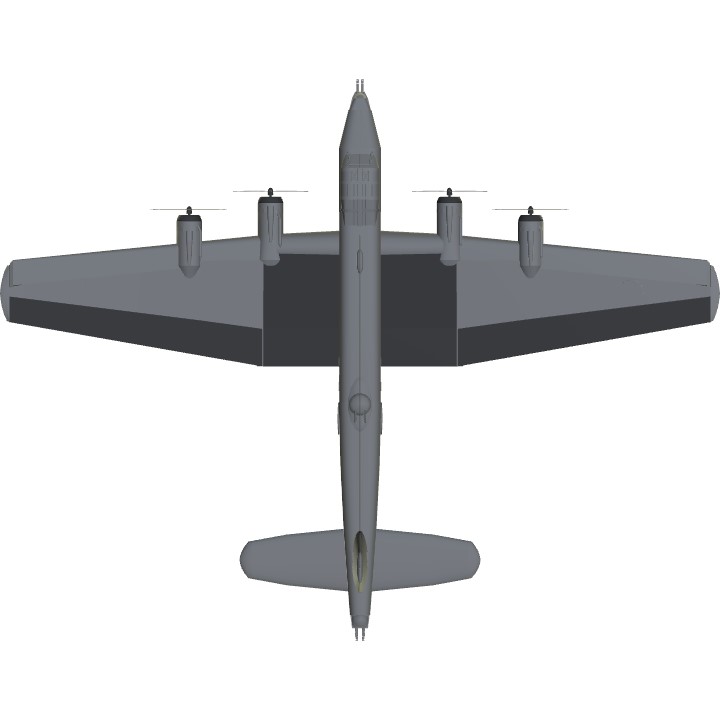
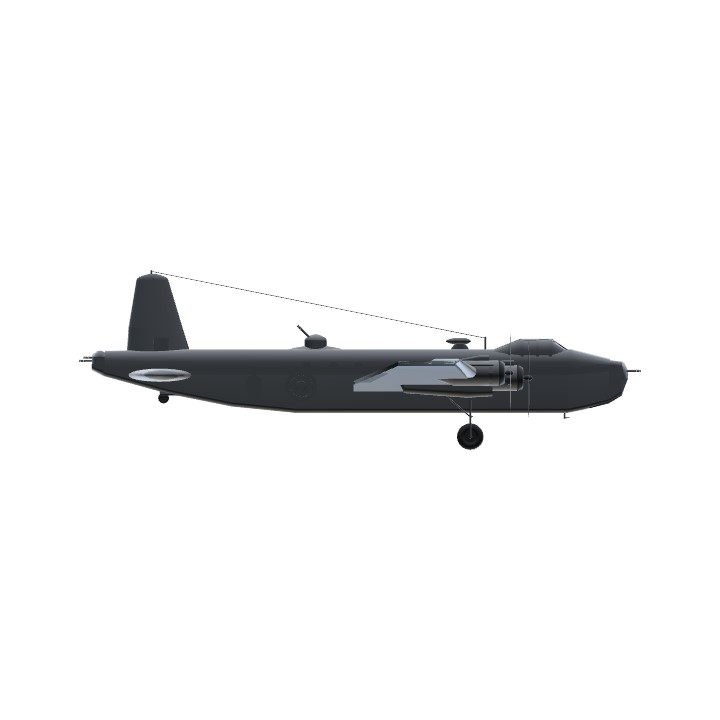
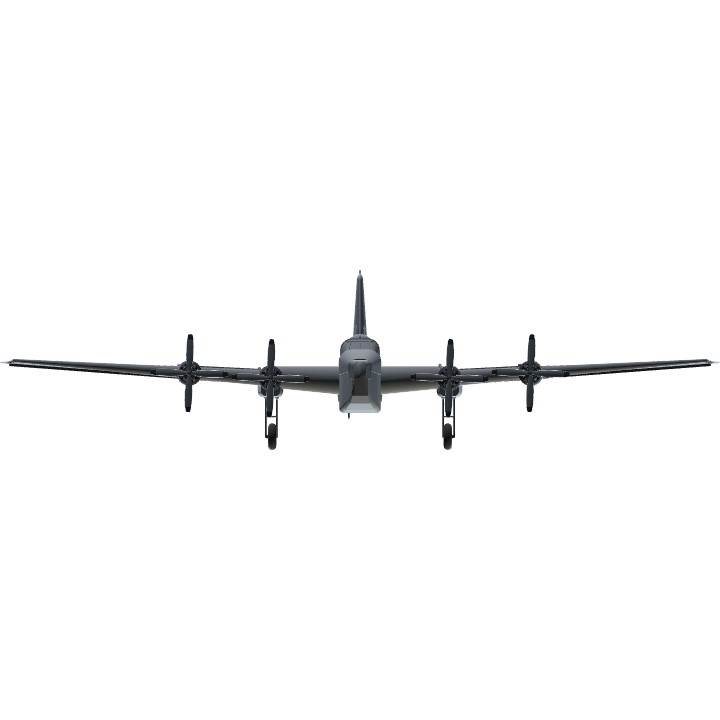
@DeezDucks .it doesn't matter:)
very nice! I didn't notice it earlier sadly
@General360 thanks:)